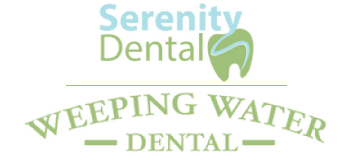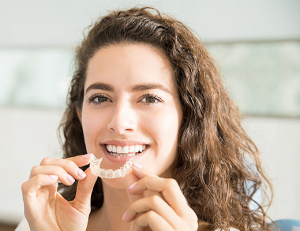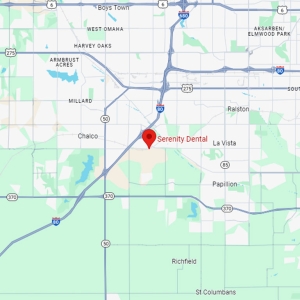Services
General Dentistry
General dentistry is the cornerstone of oral healthcare, encompassing a wide range of preventive, diagnostic, and therapeutic services designed to maintain optimal oral health for individuals of all ages. General dentists are trained to address a broad spectrum of dental concerns, from routine cleanings and examinations to more complex restorative procedures and cosmetic treatments.
General Dentistry Services include:
- Preventive care: Regular checkups and cleanings, fluoride treatments, and dental sealants to prevent cavities, gum disease, and other dental problems.
- Diagnostic procedures: Oral examinations, X-rays, and other diagnostic tools to identify and assess dental issues early on.
- Restorative care: Fillings, crowns, bridges, dentures, and root canals to restore the function and aesthetics of damaged or decayed teeth.
- Cosmetic dentistry: Teeth whitening, veneers, and bonding to enhance the appearance of teeth and improve overall smile aesthetics.
- Periodontal care: Scaling and root planing, gum grafting, and other treatments to address gum disease and protect the supporting structures of teeth.
Cosmetic Dentistry
Cosmetic dentistry is a specialized branch of dental care that focuses on improving the aesthetics of teeth, gums, and the overall smile. Through a variety of procedures, cosmetic dentists aim to enhance the appearance of teeth, address imperfections, and create a more attractive and confident smile.
Common Cosmetic Dentistry Procedures include:
- Teeth Whitening: Teeth whitening is a popular procedure that lightens the color of teeth, removing stains and discoloration caused by food, beverages, and aging. Various teeth whitening options are available, including professional in-office treatments and at-home whitening kits.
- Dental Bonding: Dental bonding involves applying a tooth-colored resin material to the surface of a tooth to restore its shape, size, or color. Bonding can be used to repair chipped or cracked teeth, close gaps between teeth, and even lengthen the appearance of short teeth.
- Dental Veneers: Dental veneers are thin, custom-made shells that are bonded to the front surface of teeth to mask imperfections and enhance the appearance of the smile. Veneers can be used to address a variety of cosmetic concerns, such as discoloration, chipped or cracked teeth, misaligned teeth, and gaps between teeth.
Emergency Dental Care
Dental emergencies are something that no one ever wants to face. Of course, when this does happen, it can be an extremely difficult situation as you will not have the proper time allotted to fix the issue. Dental emergencies, in more ways than one, can seem like a tough challenge. When it comes to the healthcare, it is difficult for you to tell what extent of danger your in.
What is a Dental Emergency?
A dental emergency is similar to any emergency, but is related to the pain, discomfort, injury, or anxiety that you and your family may feel at the time. A dental emergency is anything that is causing so much pain or discomfort that it has become unbearable or an extremely dangerous and delicate situation that cannot wait before it becomes a threatening issue.
Types of Dental Emergency Services:
-
Extractions
-
Root Canals
-
Emergency Treatment for pain
-
Same Day Appointment Available
Family Dentistry
Family dentistry is a branch of dentistry that focuses on providing comprehensive dental care for individuals of all ages, from infants to seniors. Family dentists are trained to treat a wide range of dental conditions, including preventive care, restorative care, and cosmetic dentistry. They also provide education and counseling on oral hygiene and healthy lifestyle habits.
Family Dentistry Services include:
- Preventive care: Regular cleanings and exams, fluoride treatments, and sealants
- Restorative care: Fillings, crowns, bridges, dentures, and root canals
- Cosmetic dentistry: Teeth whitening, veneers, and bonding
- Orthodontics: Braces and Invisalign
- Oral surgery: Extractions, wisdom teeth removal, and jaw surgery
- Pediatric dentistry: Care for infants, children, and adolescents
- Geriatric dentistry: Care for seniors
Dental Restorations
Restorative dentistry is a specialized branch of dental care that focuses on restoring the function, structure, and aesthetics of teeth that have been damaged, decayed, or lost. Through a variety of procedures, restorative dentists aim to repair or replace damaged teeth, improving both oral health and overall well-being.
Common Restorative Dentistry includes:
- Tooth Colored Fillings: Fillings are used to repair cavities, the most prevalent dental problem. Dentists remove the decayed portion of the tooth and fill the cavity with a material, such as amalgam, composite resin, or glass ionomer cement, to restore the tooth’s structure and function.
- Crowns: Crowns are tooth-shaped caps that are placed over a weakened or damaged tooth to protect it from further damage, improve its appearance, and restore its functionality. Crowns are typically made of porcelain, metal, or a combination of both.
- Bridges: Bridges are used to replace missing teeth by anchoring them to the adjacent teeth or implants. Bridges restore chewing ability, prevent shifting of adjacent teeth, and improve facial aesthetics.
- We have techniques to make the procedures comfortable.
Anti-Snoring Devices
Variety of devices target different causes of snoring. Snoring can be caused by relaxed tissues in the throat, a blocked nasal passage, or a combination of factors.
Anti-Snoring Devices include:
- CPAP machines: A CPAP machine has a hose that attaches to a plastic mask that you wear over your mouth and nose while you sleep. The hose delivers a constant stream of air pressure into your nose and mouth, preventing your tongue from blocking the back of your throat. Some CPAP machines include a setting called pressure relief that lowers the amount of air pressure delivered each time you exhale. CPAP machines typically require you to plug them in, although battery-operated devices are now available as well.
- Auto-adjusting positive airway pressure (APAP): Also known as Auto-CPAP machines, these devices differ from standard CPAP equipment in that they can automatically increase or decrease the air pressure delivered to align with your breathing patterns. The APAP machine can be a good alternative if you cannot tolerate the CPAP machine or you change positions often during sleep. Changes in position often necessitate changes in the amount of air pressure you require to prevent an apnea episode.
- Bilevel positive airway pressure (BiPAP): This device comes equipped with two pressure settings. You receive more air pressure when you inhale and less air pressure when you exhale. BiPAP equipment has a greater air pressure range compared to the CPAP and APAP devices, delivering up to 30 cm of oxygen when needed.
Tooth Replacement
Missing teeth can be replaced with various options. There are several solutions for missing teeth, including Implants for single tooth replacement, dentures, and “All on 4” implants. Each option has its advantages and disadvantages depending on the number of teeth missing, jaw health, and budget.
Tooth Replacements include:
- Implants for single tooth replacement and denture retention
- Dentures replace all teeth in an arch. Full dentures are a removable option for those missing all their teeth in an upper or lower jaw. Partial dentures are used when some natural teeth remain. While dentures are affordable, they can require adjustments over time and may impact chewing ability.
- “All on 4” implants to replace dentures with a fixed option that looks natural and feels great.
- We have teamed up with local Oral Surgeons to provide a tooth replacement option at an affordable price. Financing is available.
Dental Hygiene
Dental hygiene is the practice of maintaining dental health. It involves basic efforts like brushing and flossing and other practices like visiting the dentist and fixing dental issues. Proper dental hygiene can lead to a brighter smile, fewer dental concerns, healthy gums, fresh breath, and more!
Proper dental hygiene involves practices related to preventative care. This means these efforts help to prevent a wide variety of dental issues, such as tooth decay, cavities, gum disease, and more. If you don’t have a good dental hygiene regimen, you may be more prone to experiencing problems.
Dental Hygiene Best Practices include:
- Focus On Brushing
- Routine Exams
- Digital X-rays to reduce the amount of radiation to minimal amounts.
- Drink lots of water
- Don’t Forget to Floss
Orthodontics
Orthodontics is a dental specialty that corrects teeth and jaw misalignment. This can improve a person’s smile, bite, and overall facial appearance.
Teeth Straightening Orthodontics include:
- There are many different types of orthodontic appliances, including braces, retainers, and clear aligners. The type of appliance used will depend on the severity of the misalignment and the patient’s age.
- Braces are the most common type of orthodontic appliance. They consist of brackets that are bonded to the teeth and wires that connect the brackets. The wires are tightened over time to gradually move the teeth into their correct positions.
- Clear aligners are a newer type of orthodontic appliance that is becoming increasingly popular. They are made of clear plastic and are virtually invisible when worn. Clear aligners are a good option for adults who want to straighten their teeth without the appearance of traditional braces.













